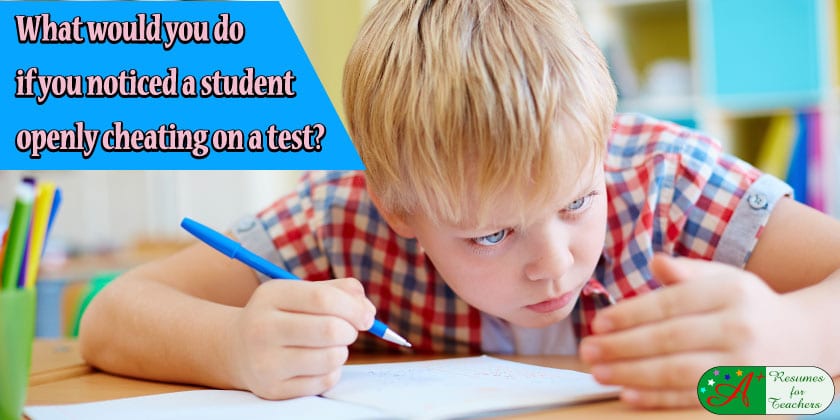Handling a situation where a student is openly cheating on a test requires a careful balance of firmness, fairness, and guidance. Here’s how I would approach it:
First, I would discreetly ask the student to step aside or come to my desk to address the matter privately, ensuring I didn’t embarrass them in front of their peers. Maintaining calm, direct eye contact, I would convey the seriousness of the situation while remaining composed and supportive.
For example, I might say:
“I need to speak with you privately for a moment. Let’s step aside and have a quick conversation.”
Once in private, I would explain what I observed and give the student an opportunity to respond.
I could say:
“I noticed that you were looking at another student’s paper during the test. Can you help me understand what happened?”
If the student admits to cheating, I would clearly explain that this behavior violates the school’s academic integrity policy and outline the appropriate consequences, such as notifying their parents or guardians and arranging for them to retake the assessment.
I might say:
“I appreciate your honesty. However, cheating is not acceptable because it prevents you from truly learning and can affect your future opportunities. I’ll need to let your parents know about this, and you’ll have the chance to retake the test. I believe you can succeed through your own effort, and I’m here to help you do that.”
If the student denies cheating despite clear evidence, I would calmly present my concerns and offer them a chance to demonstrate their understanding in a different way, such as an oral or written assignment.
For example:
“I understand you’re saying you weren’t cheating, but based on what I observed, I do have serious concerns. To be fair, I’m offering you the option to show what you know through an oral assessment or a different task. Let’s work together to resolve this the right way.”
Regardless of the student’s response, I would document the incident, inform their parents or guardians, and follow through with the school’s policy.
In both scenarios, I would take the opportunity to emphasize the importance of integrity, responsibility, and learning from mistakes.
I might conclude with:
“Everyone makes mistakes, but it’s how we move forward that matters. I expect honesty and effort in this classroom because I know each of you is capable of great things. Let’s use this experience to grow and do better next time.”
Ultimately, my goal would be to hold the student accountable while providing the guidance and support they need to make better decisions in the future.


